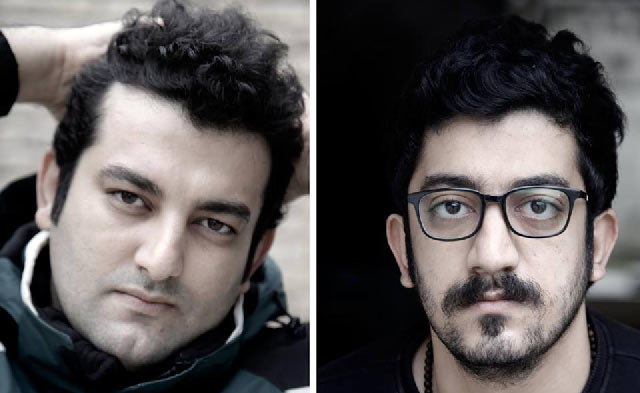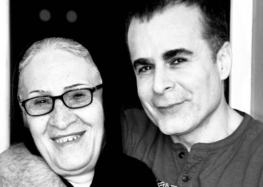Underground Music Distributors Await Appeal Decision for Six Years in Prison

Two musicians and a filmmaker who were jointly sentenced to six years in prison and fined 200 million rials (about $6,650) each for “insulting the sacred” and “propaganda against the state,” are awaiting a ruling by a Tehran appeals court, a source told the International Campaign for Human Rights in Iran.
Mehdi Rajabian, a musician and founder of BargMusic, an underground music distributor in Iran, along with his brother, Hossein Rajabian, an independent filmmaker and photographer, and Yousef Emadi, a musician, were put on trial in May 2015 at Branch 28 of the Revolutionary Court presided by Judge Moghisseh.
“The trial lasted 15 minutes and the defendants were accused of encouraging indifference towards religion by promoting underground music,” the source told the Campaign. They were tried together because they were considered collaborators in a joint plot.”
The three music distributors were arrested by Revolutionary Guards’ Intelligence Organization in October 2013 and held in solitary confinement for more than two months in Evin Prison’s Ward 2-A, run by the Guards’ Intelligence Organization and put under intense pressure to make false televised confessions.
Following their arrest, more than 400 Iranians, including dozens of prominent artists, signed a petition calling on the Culture and Islamic Guidance Minister to put an end to the crackdown on the artistic community.
“The Appeals Court will hear their case next month (January 2016) at Branch 54 of the Revolutionary Court to be presided by Judge Babaei. They are hoping the court will change their sentence,” the source added.
The source told the Campaign that BargMusic did promote underground music but it was operating openly and even applied several times for an official permit from the Ministry of Culture and Islamic Guidance.
Since the establishment of the Islamic Republic, Iranian musicians have needed government authorization in order to hold concerts, and produce music albums and videos. Government scrutiny is stringent, and only certain genres of music receive licenses. Under such circumstances, musicians have been pushed underground, where they perform illegally at great risk to themselves and to their audiences. Even when musicians are issued concert licenses, there is no guarantee that they can safely hold their scheduled appearances. It is within this context that the BargMusic website became a dedicated portal for distributing Iranian underground and alternative music inside Iran.
“Mehdi Rajabian launched BargMusic in 2009. It was one of the few serious online distributors of underground music in Iran,” the source said. “At the time of his arrest, Mehdi was in the middle of a research project and was recording the history of the Iranian string instrument, the setar. They confiscated everything related to the project, including the hard drives. His brother Hossein had just finished his first feature film when he was arrested. The film has been confiscated even though it was made with a permit.”
Arts and culture in Iran have not escaped the intensifying crackdown by hardliners in Iran, who are anxious to maintain their domestic primacy, especially as the country approaches Parliamentary elections in February 2016. Arrests are growing in number and the Judiciary has been issuing harsher sentences.
In October, Kurdish filmmaker Keywan Karimi was sentenced to six years in prison and 223 lashes for “insulting the sacred” and two poets, Fatemeh Ekhtesari and Mehdi Moosavi, were sentenced to 9 years and 6 months and 99 lashes, and 11 years and 99 lashes, respectively, for “insulting the sacred” in their poetry.
In addition, musicians have been banned, concerts have been cancelled, films banned, and books refused licensing for publication.






